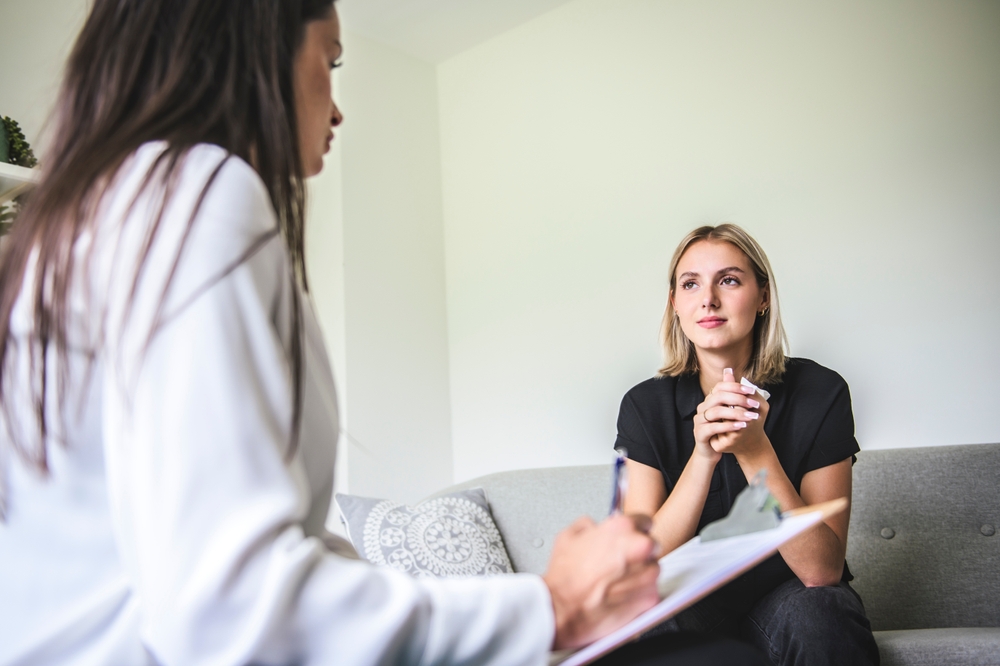Last Updated:
July 24th, 2025
Your first step towards recovery starts with one honest conversation.
Why speaking to your GP matters
Admitting that you may have a problem with drugs, alcohol, prescription medication, or behavioural addictions (like gambling) can feel overwhelming. But your GP is a trained, confidential, and non-judgemental starting point for support. They can:
- Help assess the severity of your addiction
- Offer medical advice and monitoring (especially important for withdrawal)
- Refer you to specialised treatment services (NHS, local charities, or private rehab)
- Provide prescriptions for medication-assisted treatment if appropriate
- Help you access mental health services if needed
You don’t need to have hit “rock bottom” to reach out. If something doesn’t feel right, your GP is there to help you before things spiral.
Step-by-step: How to prepare and what to say
1. Be honest, with yourself first
Before your appointment, reflect on the following:
- What substances or behaviours are you struggling with?
- How often are you using/engaging?
- How is it impacting your life (work, health, relationships, money)?
- Have you tried to stop or cut back? What happened when you did?
Try to write this down, it will help you stay focused during the conversation.
Tip: You don’t need to have all the answers. Just being open about your concerns is enough.
2. Use clear, honest language
Start with something simple, like:
- “I think I might have a problem with drinking, and I don’t know what to do about it.”
- “I’m using drugs more than I want to, and I’m worried I can’t stop on my own.”
- “I’ve been taking more of my prescription meds than I should, and I’m scared.”
- “I can’t stop gambling, and it’s ruining my life. I need help.”
Your GP will likely ask about:
- Frequency and amount of substance use
- Physical or mental health symptoms
- Any history of overdose, withdrawal, or hospitalisation
- Whether you have support from family or friends
Don’t downplay your situation. GPs aren’t there to judge. They need the full picture to offer the right support.
3. Be ready to talk about physical and mental health
Addiction rarely exists in a vacuum. Your GP may ask if you’ve been experiencing:
- Depression or anxiety
- Mood swings or irritability
- Sleep problems
- Appetite or weight changes
- Memory or concentration issues
- Chronic pain or other medical conditions
You can also let them know if you’ve experienced trauma, stress, or major life changes. These can all contribute to substance use, and your GP can consider this when planning treatment.
4. Ask about your options
You have more options than you might think, and your GP can help guide you through them.
NHS or community treatment services
These may include:
- Local drug and alcohol recovery teams
- Talking therapies
- Outpatient detox or maintenance medication
- Support groups and relapse prevention programmes
NHS treatment is free but may involve longer waiting times, and some areas have limited resources.
Private rehab treatment
If you’re seeking faster access or more intensive care, private residential rehab may be a suitable option. You can ask your GP:
- Can you support me if I choose private rehab?
- Can you help me with a medical referral or assessment?
- Will you work with my chosen rehab provider to ensure continuity of care?
Private rehab can offer:
- Immediate access to detox and therapy
- 24/7 medical support during withdrawal
- Structured daily programmes including therapy, education, and aftercare planning
- Accommodation and a safe environment away from triggers
Your GP might not recommend a specific provider, but they can support your decision, help you understand what to expect, and offer medical backup if needed (e.g. pre-rehab screening or medication).
“I don’t think I can do this alone. Can you support me through this process?”
“I’m scared I’ll be judged.”
Your GP is a professional bound by confidentiality. You are not the first, or last, person to open up about addiction.
“What if they put it on my record?”
Medical records are confidential and only accessed by those providing your care. Being honest on your record can actually protect you, for example, if you’re prescribed medication in future.
“What if they say it’s not bad enough?”
If you feel your concerns are dismissed, ask to see another GP. But most GPs will take addiction seriously, even in its early stages. Early intervention often prevents years of harm.
What happens after the appointment?
Your GP may:
- Refer you to a local drug and alcohol service for assessment
- Arrange blood tests, liver function tests, or physical health checks
- Discuss medication options (e.g. for alcohol dependence or opiate addiction)
- Provide harm reduction advice (e.g. safer use, naloxone, needle exchange)
- Offer regular check-ins or reviews
- Help with mental health referrals (e.g. talking therapy, psychiatric support)
You may be given leaflets, contact details for local services, or links to self-help groups such as AA, NA or SMART Recovery.
Follow up is key. If you feel overwhelmed after the first step, call your GP practice again. Recovery is a journey, not a one-off appointment.
Need urgent help?
If you’re in immediate danger (e.g. at risk of overdose or suicidal), call 999 or go to A&E.
For non-emergency support, you can also:
- Call NHS 111 for advice
- Reach out to FRANK on 0300 123 6600 (drugs) or Drinkline on 0300 123 1110 (alcohol)
- Contact a private rehab provider, like UKAT, directly to discuss options
- Speak to addiction charities or your local crisis team
Speaking to your GP about addiction can feel intimidating, but it’s also one of the bravest and most empowering steps you can take. Whether you pursue NHS treatment, local community support, or private rehab, your GP is there to help you navigate the options, manage your health, and begin the path to recovery.
It’s not about being perfect. It’s about being honest.
Your future doesn’t have to look like your past, and it starts with one conversation.




